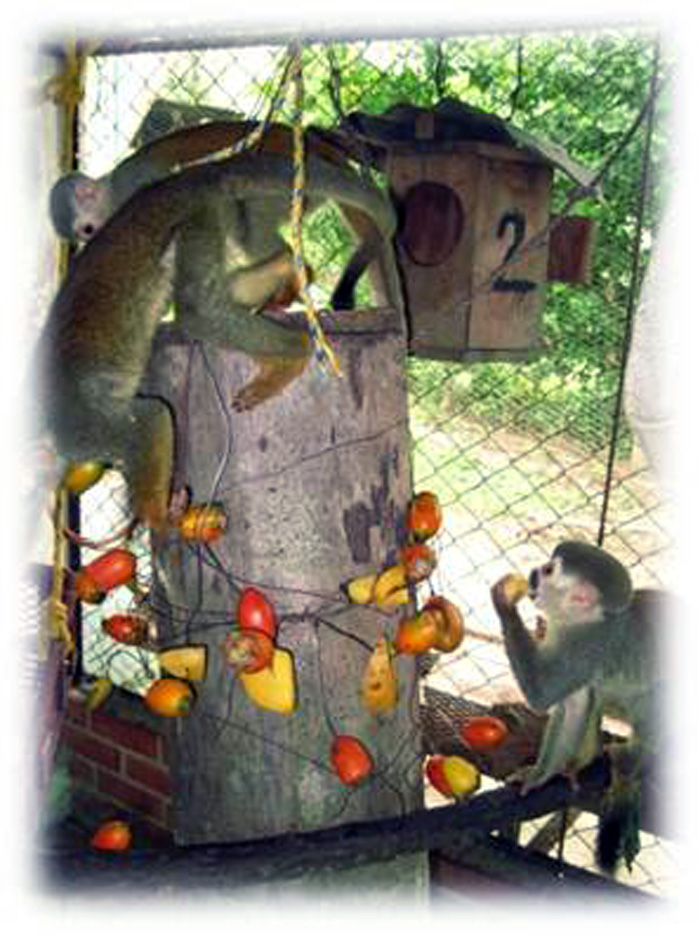Captivity repercussions on wild animal"s behavior have been well documented. However, there are just a few resources to modify captivity effects on the species.
That is why, Juan Pablo Parra, a Master"s student at Universidad Nacional in the Amazon, started this project to create a previous stage for captive animals to become accustomed and to be prepared to face the new conditions when set free.
Through visual and audio stimuli of the environment, the investigation wanted to reestablish the altered behaviors cause by captivity.
"What we did was comparing behavior and activity patterns in captive squirrel monkeys In Hogar de Paso de Fauna Silvestre of Universidad de la Amozonia and Corpoamazonia in Florencia, Caqueta, with repots of free life. After that, we established specific environmental stimuli with objects and sounds in the cages to promote a natural behavior," explained Parra.
This study was performed on 12 monkeys with different biological development in 2, 15m wide X 2, 30m long and 1, 96m tall cages. The captive species had huge variations on their daily activities and a big number of stereotypical behaviors (copied from humans and their life close to them in captivity).
It was found that adults reacted faster and more positively to the strategy, modifying their behavior towards the original one (the one they used to have in wild life), while new born animals had slow behavior changes and symptoms of deep depression due to the lack of nursemaids in the group or tutor adults. In addition, they experience general rejection by the group.
In Colombia, every day 175 exotic animals are confiscated by authorities in transportation terminals. Monkeys are one of the groups traffickers feel special attraction to.
In the squirrel monkeys" case in the Amazon forests, exact figures about their trafficking are not know, but it is known that the price per monkey is very high in other countries, they can go from 400 to 1,000 euros.
Generally, after authorities confiscate the animals, they do not have the necessary technical or economic resources to keep the animals in good welfare conditions, this being one of the main causes of death among these animals. That is why this project is considered very important.
 Correo Electrónico
Correo Electrónico
 DNINFOA - SIA
DNINFOA - SIA
 Bibliotecas
Bibliotecas
 Convocatorias
Convocatorias
 Identidad UNAL
Identidad UNAL





